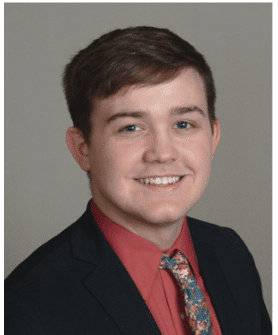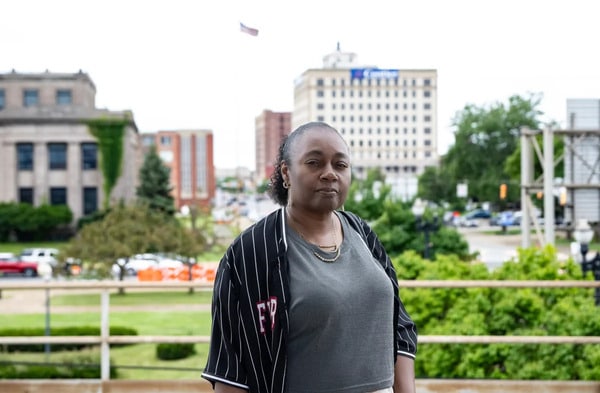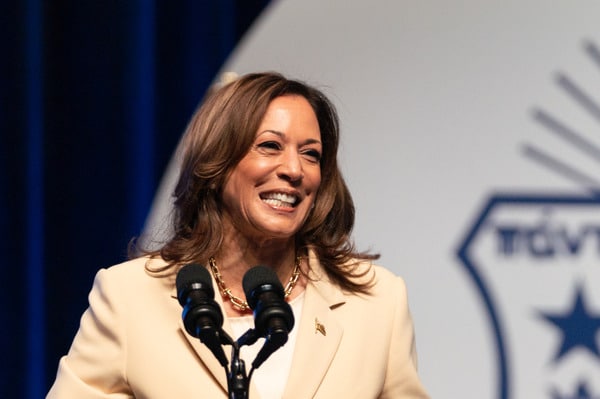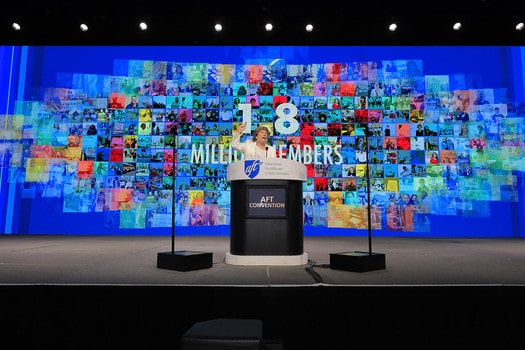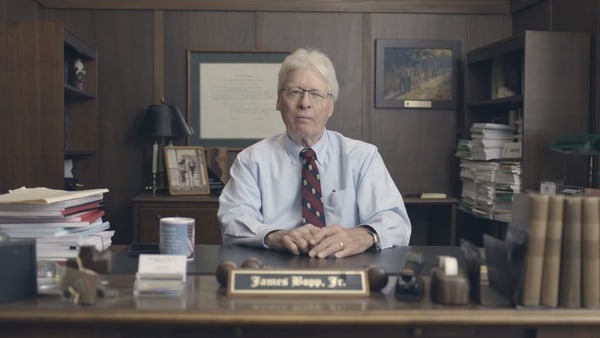Many gray-haired Indiana General Assembly legislators are making decisions that shape a future the elder lawmakers may not witness, as Pierce Fischer (above), 22, sees it. And he has a problem with that.
Nearly half of the Indiana General Assembly is made up of baby boomers, or people between the ages of 58 and 76, according to a 2015 study by the National Conference of State Legislatures. The same demographics study was conducted in 2020, but age statistics were incomplete. The 2015 study only included 58% of Indiana General Assembly legislators.
“The biggest thing coming up with our generation is going to be climate change and stuff like that,” Fischer said. “And obviously we have a lot of skeptics on the right, right now, regarding climate change.”
He is running against Republican incumbent Rep. Michael Aylesworth, R-Hebron, and Andrew Boersma, a funeral home director in Wheatfield. In contrast to the 22-year-old challenger, Aylesworth is 79.
Fischer’s main complaint is that the legislature is older than the average Hoosier. But there are other ways the demographics don’t match the state’s makeup.
In a POLITICO article based on the National Conference of State Legislatures study, the outlet found that Indiana’s legislature is more white and male than the state’s population.
The state’s population is 21% nonwhite, but the legislature is only 10% nonwhite. Women are also underrepresented, making up only 24% of the Indiana General Assembly.
Andy Downs, head of the Mike Downs Center for Indiana Politics at Purdue University Fort Wayne, said there are three contributors to Indiana’s mostly white, male and older legislature. Legislators are often chosen due to name recognition, incumbents are re-elected at a high rate, and the system is set up to benefit insiders, Downs said.
“When you start putting all those together, what you end up with is a system that’s not necessarily open to new individuals,” Downs said.
Downs said another barrier is the fact that older people tend to vote more frequently than young people. Because of this, relying on young voters to win an election usually doesn’t work.
According to a Tufts University study, the turnout rate in Indiana for Hoosiers ages 18-29 was 42% in the 2020 election. The overall turnout in Indiana in 2020 was 65%.
Fischer, who is running against a well-known incumbent, is facing these challenges. Aylesworth has represented the Northwestern Indiana district since 2014 and has been involved in politics since 1976.
Overall, Downs said the impact of having legislators who don’t resemble the population of the state means most of the General Assembly may not have a direct understanding of younger, nonwhite and female Hoosiers.
“It is certainly possible for individuals to have some kind of understanding of what life is like for other people,” Downs said. “But the lived experience is very different than developing an understanding.”
If elected, Fischer would be the youngest member of the Indiana House. Former House Rep. Chris Chyung held this title, taking office at 25.
During his time in the legislature, Chyung advocated for the age to run for state office to be decreased to 18. Current Indiana law requires senators to be at least 25 and representatives to be 21. This bill didn’t pass.
In 2017, a nonpartisan caucus was formed of millennial legislators. The Indiana Future Caucus was created as part of the Millennial Action Project’s national movement to unite young legislators. This effort was led by former Reps. Dan Forestal and David Ober. Forestal died in July 2021 following his resignation in 2020. Ober stepped away to be a member of the Indiana Utility Regulatory Commission.
The caucus has seemingly been inactive in recent years.
Bringing something fresh to the GOP
In 2016, Fischer said he supported Donald Trump. He no longer supported Trump by the next election, he said, so he voted for a third-party candidate.
“It kind of woke me up, I guess, to the direction the Republican Party was headed,” Fischer said.
Fischer attended Indiana University Bloomington for a year, studying to be a social studies teacher, but soon left the college because of a low GPA. After graduating in a high school class of 68, his time at the college made him realize how much larger the world was than his small town. But ultimately, he said he prioritized his social life over his education.
He’s now pursuing an online associate’s degree in criminal justice and lives with his parents in their Northwestern Indiana home. He describes himself as a moderate conservative interested in conservation, legalized marijuana and public education funding.
The Herald-Times found in 2017 that the state legislature also lacked diversity in occupation, with 30% of Indiana’s lawmakers being business owners and 15% lawyers.
Because the Indiana General Assembly is a part-time legislature, lawmakers have to maintain other employment while it isn’t in session. This often causes conflicts of interests, like Todd Huston’s resignation from the College Board during debate on House Bill 1134, which was designated an “anti-CRT” bill.
Unlike the older business owners in the Indiana General Assembly, Fischer has watched his peers struggling to make a living wage and find a home.
“I’ve worked a lot of jobs recently,” Fischer said. “But it’s kind of woken me up, I guess, because I’m very, very lucky to have the parents I have and that they make the money they make. But a lot of people don’t have this support system, and I kind of want to bring awareness to that fact as well.”
Whether or not Fischer receives the votes he needs for the Statehouse seat, he’s worked during his campaign to encourage his peers and local high schoolers to recognize the importance of political involvement. As the primaries inch closer, he is encouraging District 11 residents to get out and vote on May 3.

